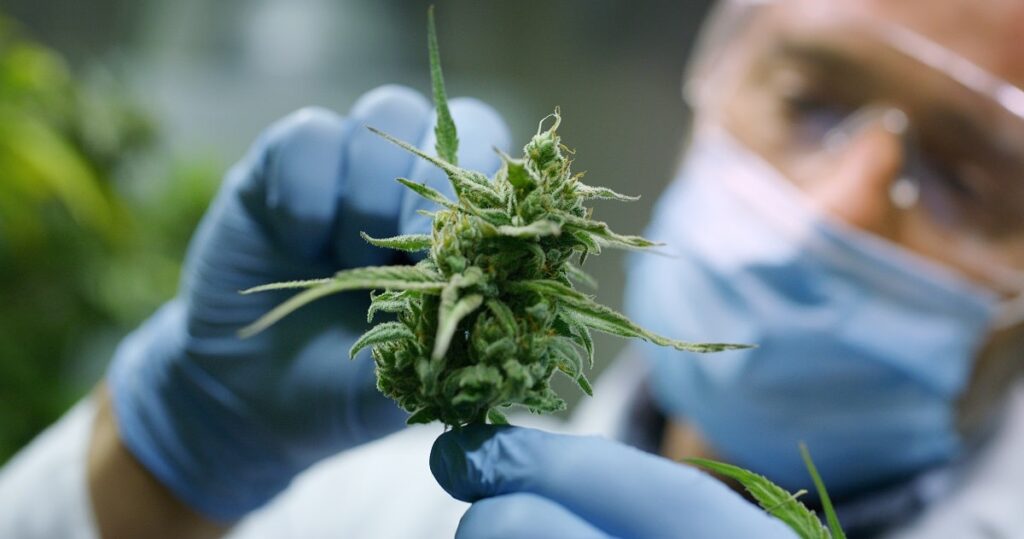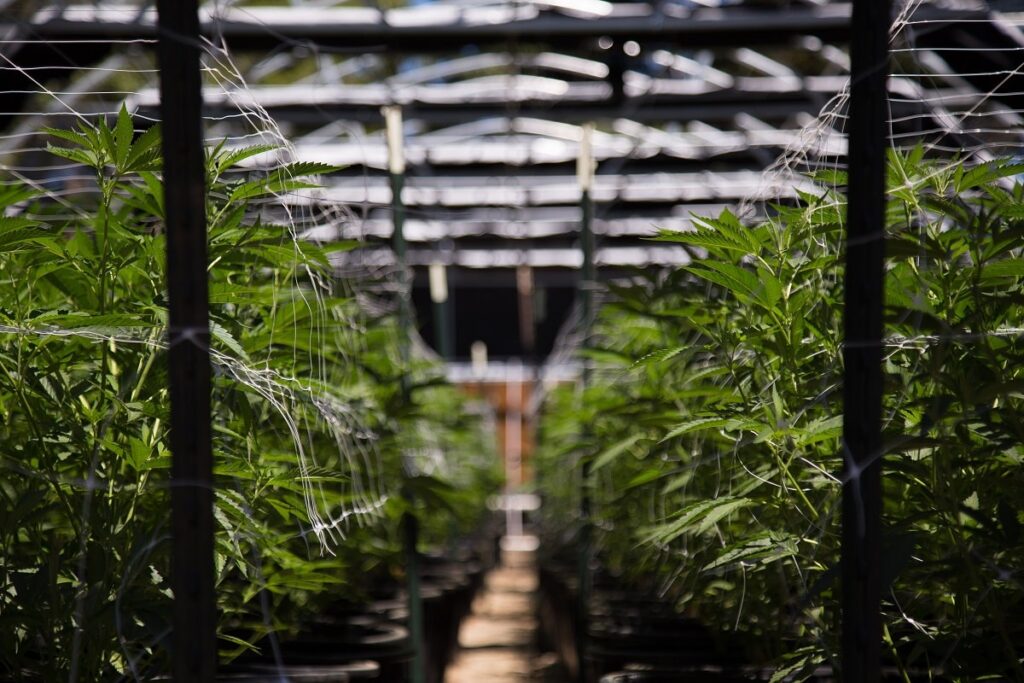Cannabis is a group of plants controversially known for its psychoactive properties. These are Cannabis ruderalis, Cannabis sativa, and Cannabis indica.
Cannabis is a type of flowering plant. Harvesting and drying its flowers leaves you with a powerful drug that can treat various conditions. These include chronic pain, glaucoma, multiple sclerosis, cancer, and other detrimental health problems.
Cannabis flowers have different names: weed, pot, and marijuana. However, many people prefer using ‘cannabis’, as it sounds more accurate. Yet, others think it’s neutral and removes the illegal connotation associated with weed and pot.
On top of that, people dislike using the term ‘marijuana’ to refer to cannabis because of its racist history. That’s why you’ll rarely hear people using it these days.

If you’re interested in entering the commercial cannabis business, you’re on the right page. This post will help you understand the process of growing cannabis commercially, including popular cannabis products. Read on to learn more.
1. How to Start a Commercial Cannabis Business?
If you want to start a commercial cannabis business, you need to understand a couple of things. First, it requires a cultivation facility, which can cost you a lot of money to start.
Second, running a commercial cannabis business is no easy task. You must persevere to see the light at the end of the tunnel. When you enter this kind of business, it’s important to study every method available for more effective and efficient cultivation.
Here are the things you need to start a commercial cannabis business:
Business Plan.
This is crucial for a commercial cannabis business. It’ll help you manage your resources efficiently and keep you on track with your business. A business plan should include the following:
- Business goals.
- The cultivation process, including planting, harvesting, compliance, waste removal, logistics, and other essential processes.
- Manufacturing costs and revenues.
- Sales and marketing strategies.
- Organizational hierarchy.
When you create a business plan, keep all your employees engaged. Be open to suggestions and criticisms and let them voice out their opinions.
Technology.
Technology helps commercial growers cultivate cannabis plants efficiently and effectively. One of the most important pieces of equipment you can use is an automatic bud sorter developed by companies like Mobius.
An automatic bud sorter helps you stay competitive and improves the quality and marketability of your cannabis products. It quickly sorts buds by size, simplifying post-harvest operations and optimizing the value of your produce.
On top of that, automated bud sorting is about 100 times faster than manual sorting. It’ll help you grow your volumes and reduce your capital expenses in the long run. Plus, it’s gentle and precise, minimizing handling damage and preserving trichomes for quality, potency, and appeal.
Financing.
As a commercial cannabis grower, it’s important to establish a realistic budget when planning initial startup expenses. If you don’t have enough funds to support your business, you may explore other financing options available for commercial cannabis growers, such as:
- Equipment Financing: This business loan lets you borrow money to purchase essential equipment for cultivation, post-harvest processes, and more.
- Working Capital Loans: This loan will help you cover other expenses, such as payroll, inventory, and other overhead costs.
- Crowdfunding: This allows you to ask other people to invest in your company. In return, you have to give them a stake in your business.
- Angel Investors: They help small businesses to get started by providing a significant amount of money.
- Personal Loans: If you have a solid credit history, you might be qualified for a personal loan. However, ensure your lender allows you to put the funds into a cannabis business.
To increase your chances of getting your loans approved, build a solid credit foundation. This will encourage lenders and banking institutions to approve your loan application.
2. Is a Commercial Cannabis Business Legal?
Before launching your commercial cannabis business, check whether your state legally permits the use of cannabis. This will help you avoid legal consequences that can lead to the temporary or permanent closure of your business. As of this writing, the recreational use of cannabis is legal in 23 states—37 states and three territories have legalized cannabis for medical purposes. These include Michigan, Massachusetts, Arkansas, California, Colorado, Connecticut, Delaware, etc.
You may also consider exploring new markets, especially those entering eCommerce, such as Arizona. Expanding into established markets like Colorado, Oregon, and California has plenty of benefits.
Cannabis users in these states are more mature, allowing the demand for the plant to grow. Note that it takes time for people to accept cannabis due to the stigma surrounding it. That’s why expanding into established markets is more ideal than brand-new ones.
3. What Does Cannabis Need to Thrive and Survive?
Below are the growth requirements of cannabis you need to know:

- Wind: Cannabis requires efficient airflow. You may install fans to stimulate airflow or open your windows to allow fresh air to enter.
- Temperature: Cannabis thrives in slightly warmer climates, around 55-85 degrees Fahrenheit.
- Water: Cannabis needs water to transport essential nutrients and oxygen throughout its plant system. On average, cannabis may require six gallons of water daily.
- Light: Cannabis is considered a photoperiod plant. It may require around 12-18 hours of light per day to produce beautiful buds.
4. What are the Products You Can Produce from Cannabis?
Aside from harvesting commercial cannabis, you may also consider expanding your business by producing a range of cannabis products. These include the following:
- Cannabis Oil: This is a popular cannabis product. It has small (almost negligible) traces of tetrahydrocannabinol (THC), so don’t worry about the ‘high’ sensation often associated with marijuana.
- Cannabis Skincare: Cannabis has anti-inflammatory properties that may benefit the skin. It’s believed to help skin combat acne, improve hydration, and provide relief caused by damage.
- Cannabis Chocolates: Cannabis chocolates are ideal for chocolate lovers. However, they must be stored in places kids can’t find or reach them, as these chocolates can still get them high.
If you’re not into the chocolate business, you may try cannabis gummies. Doctors often recommend them for kids with autism, anxiety, and epilepsy. That’s because cannabis oil can have an unpleasant aftertaste, which many kids dislike.
Bottom line.
Cannabis is a plant known for its potential medical purposes. It’s believed to alleviate symptoms and treat a range of medical conditions, such as cancer, autism, chronic pain, etc.
If you’re planning to grow cannabis for commercial use, create a business plan, explore financing options, adopt new technologies, and comply with the law. Also, consider producing cannabis products to broaden your market reach. This can increase your revenue, allowing you to expand to other established markets.